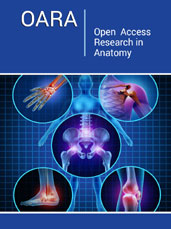- Submissions

Abstract
Perceptions in Reproductive Medicine
Factors Influencing the Spread of Domestic Violence among Heterosexual Marriage in Western Kenya
-
open or closeSilali Gerald MB*
Kenya
*Corresponding author:Silali Gerald MB, Kenya
Submission: April 18, 2019;Published: May 20, 2019

Volume3 Issue2 May ,2019
Abstract
Domestic violence in heterosexual partners, remain a major challenge on, Sustainable Development Goals. Globally domestic violence is increasing, with 31% and 69% men and women respectively, being physically, sexually or psychologically, assaulted by their intimates partners, due to variations in: socialcultural, gender isolation in secondary schooling at puberty, thus a missed opportunity in life. The silence conflicts in religions, Beijing resolutions, of 1985 and, African gender roles and power, remain sources of violence in SSA. Neglects of boy child pose serious threats, makes him, more vulnerable to domestic violence. In Kenya, for every 1000 heterosexual households, 3.8 female and 1.3 male succumb to disasters associated with domestic violence per month, due to income variations or poverty index inflation, affluence alcoholism, and hacked brains to internet, and other social platforms. Hence, need to investigate, factors influencing spread of domestic violence, specifically, social cultural, social economic, Neglect of boy child, and in fight of gender roles and power, as sources of domestic, violence. Study was cross sectional descriptive design, in stratified, random, and purposive sampling, using mixed research. Sample size of 267 respondents exploited, Quantitative data was analyzed by descriptive frequency and inference, while qualitative data, by contents analysis, of sub themes.
Results depicted that, 53% of heterosexual intimates between age, from same social cultural and traditional values, had a stronger and mutual married bond, than, 47% of integrated traditional and cultural values. Social economic status, in fighting of gender roles and power influenced negatively, on gender equality, with 95% CI 4.3, P=2.46. Majority 64% of female intimates, on high income influenced, domestic violence, resulting single parenting, then those from low income, small scale farmers, with disaster risks of OD, [2.3, 0.6]. Misuse of social platforms and internet, had positive significant, leading to neglect of marriage roles, especially cooking and serving of meals, among female gender, ‘‘male are supposed to be served by their wives, not their maids, as per African culture and value of marriage ’’, thus social genocide, if maids serve men in presence of their wives. The neglect of boy child was attributed with, over 80% domestic violence, as noted from lack of boys’ issues, documentations, from all government policies guidelines, or NGOs’ advocate, to promote boy child, as a future role model. Alcoholism among intimate couples influenced negatively, a cross genders, as a psychological shock absorber and defensive mechanism, related disasters of violence. Even though, the effects of alcohol remain silent among, highly income households, often goes viral, among low-income households. Cry, could be heard, carrying green twigs, as sign of peace, ‘‘we want our conjugal rites from ever drunkard males” The study also opined that, modern gender roles and power in marriages, has negative significant, on heterosexual marriages, which has resulted to separation, and divorce from female of higher salaries, than their husbands. Need for mutual partnership in uptake gender, roles and power, in context of African cultural values, and rites, to empower and sustain, Beijing resolutions of 1985, comprehensively and holistically.
Keywords: Domestic violence; Boy child neglect; Alcoholism; Social cultural; Social economic; Gender roles and power in family; Rites and traditions
 a Creative Commons Attribution 4.0 International License. Based on a work at www.crimsonpublishers.com.
Best viewed in
a Creative Commons Attribution 4.0 International License. Based on a work at www.crimsonpublishers.com.
Best viewed in 







.jpg)






























 Editorial Board Registrations
Editorial Board Registrations Submit your Article
Submit your Article Refer a Friend
Refer a Friend Advertise With Us
Advertise With Us
.jpg)






.jpg)














.bmp)
.jpg)
.png)
.jpg)










.jpg)






.png)

.png)



.png)






